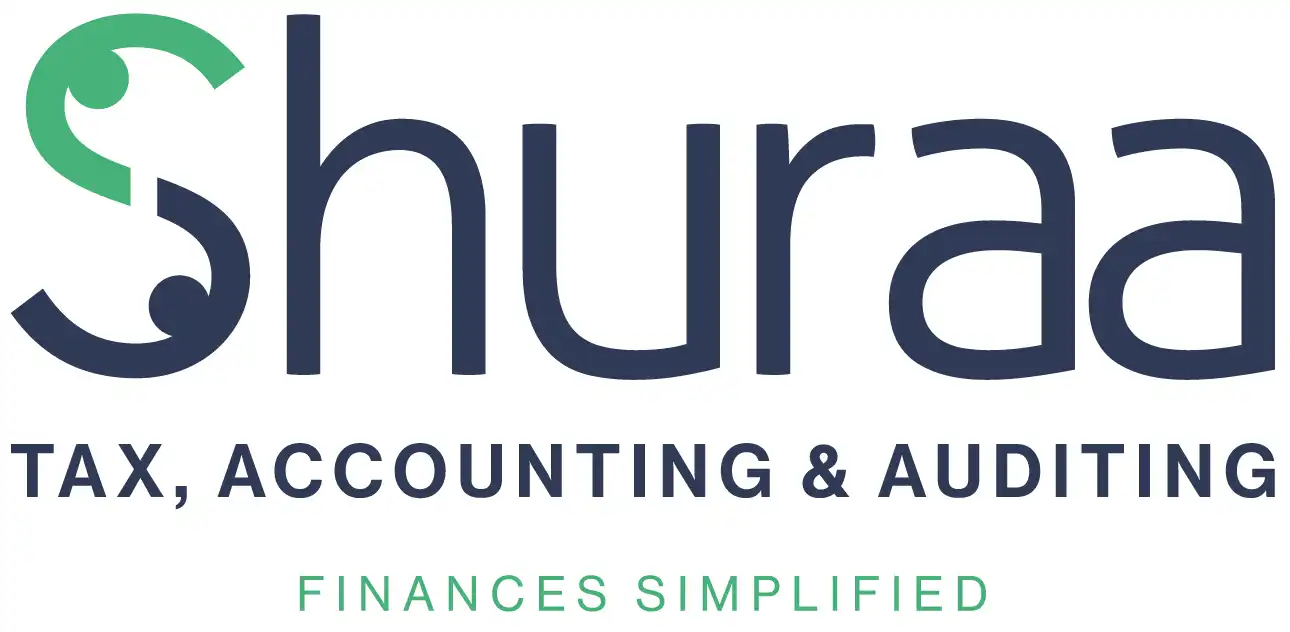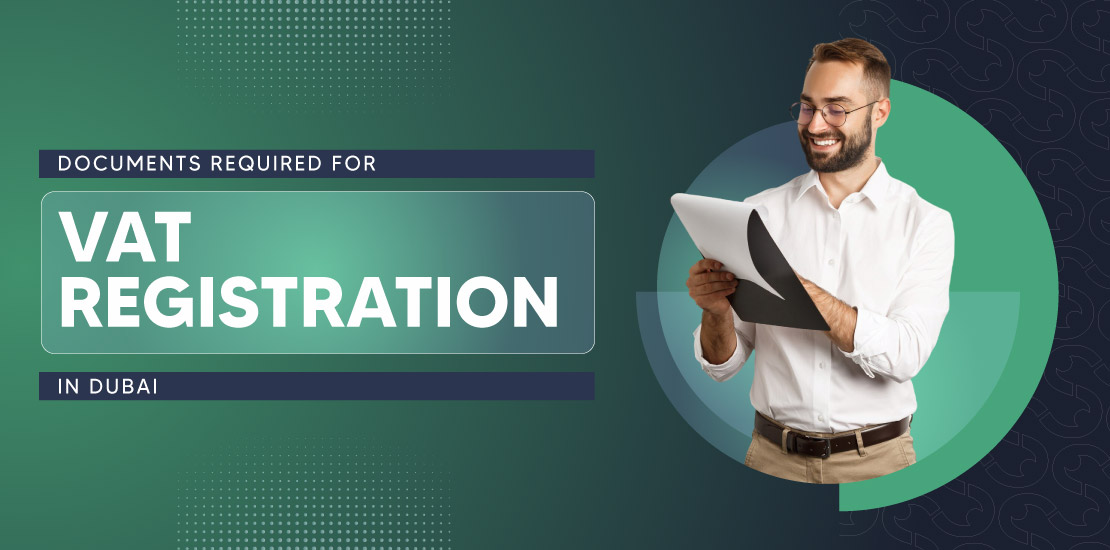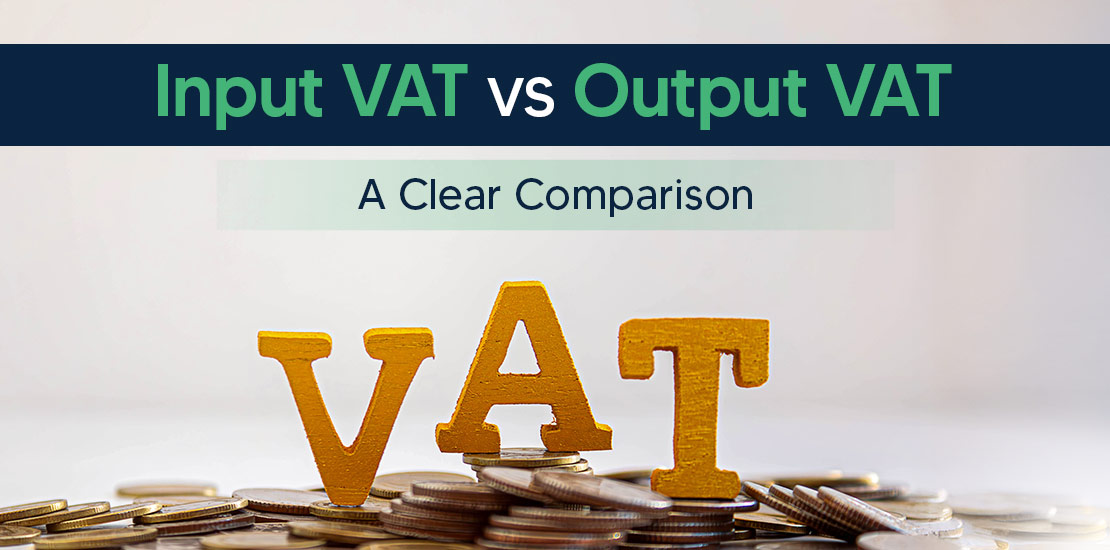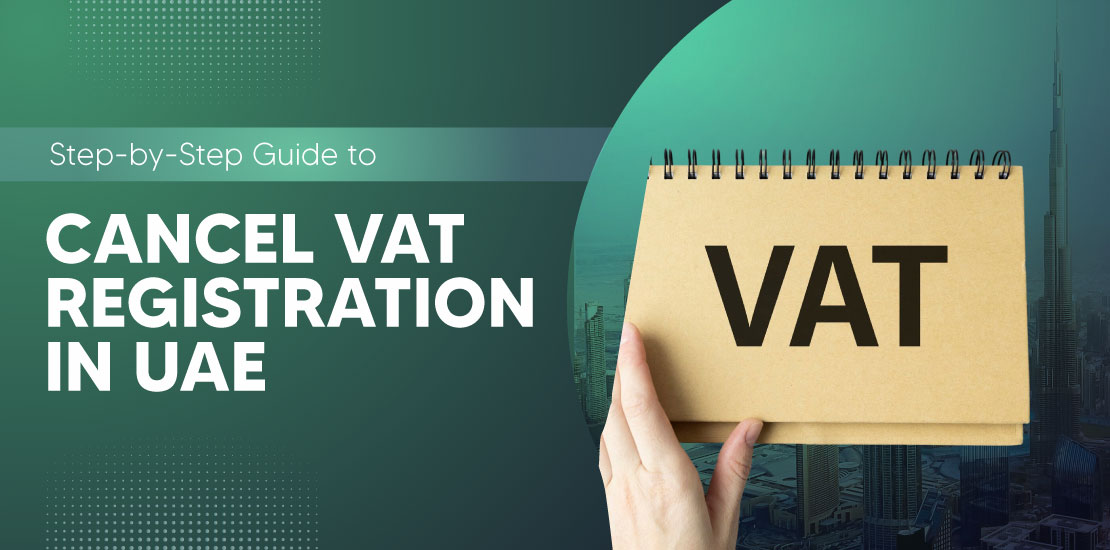Table of Contents
- What is VAT in the UAE?
- What is VAT Registration?
- Mandatory vs Voluntary VAT Registration in the UAE
- Why does VAT Registration Matters Businesses in the UAE?
- Documents Required for VAT Registration in the UAE
- What is the Timeline for VAT Registration?
- What is the Significance of VAT Registration in Dubai?
- Required Documents for Tax Group Registration
- How do I register for VAT in Dubai?
- How to Register a Tax Group in the UAE?
- How to Register for a Tax Registration Number in the UAE?
- Why Shuraa tax?
Documents required for VAT registration will be submitted to the Federal Tax Authority (FTA) via a web portal. To obtain the Tax Registration Number (TRN) for the firm, several conditions for VAT registration in the UAE must be met.
If a company’s taxable supply and imports surpass the statutory registration level of AED 375,000, it must register for VAT. Furthermore, a company may voluntarily register for VAT if the total amount of its taxable supplies and imports (or taxable costs) exceeds the AED 187,500 voluntary registration threshold.
Penalties may apply for non-compliance with the UAE VAT Executive Regulations and law. There is also the risk of a firm losing its legal position and consumer confidence due to noncompliance with regulatory requirements.
What is VAT in the UAE?
Value Added Tax (VAT) in the UAE is an indirect tax applied to most goods and services at each stage of the supply chain. Simply put, it’s a small percentage added to the price of products or services when they’re sold. Introduced on January 1, 2018, VAT is currently charged at a standard rate of 5%. Businesses collect this tax on behalf of the government and later remit it to the Federal Tax Authority (FTA).
VAT plays a crucial role in supporting the UAE’s vision to reduce its reliance on oil revenue and build a sustainable economy. While it may seem like a small addition, VAT helps fund essential public services such as healthcare, education, and infrastructure, ultimately contributing to the country’s long-term growth and stability. VAT in the UAE ensures that everyone contributes a fair share to the nation’s development while maintaining a transparent and balanced tax system.
What is VAT Registration?
VAT registration is the official process through which a business becomes recognised by the Federal Tax Authority (FTA) as a taxpayer in the UAE. Once registered, the company is authorised to collect VAT from customers on taxable goods and services and remit it to the government. In simpler terms, VAT registration gives a business its Tax Registration Number (TRN), a unique ID used for all VAT-related transactions, invoices, and filings.
Businesses in the UAE must register for VAT if their annual taxable turnover exceeds AED 375,000, which is the mandatory registration threshold. However, those with turnover above AED 187,500 but below the required limit can register voluntarily to claim input tax and enhance business credibility. Registering for VAT ensures compliance with UAE tax laws and builds trust with clients and authorities, a key step for any business operating in the country’s evolving financial landscape.
Mandatory vs Voluntary VAT Registration in the UAE
When it comes to understanding VAT registration requirements in the UAE, it’s essential to know that businesses can either register mandatorily or voluntarily depending on their turnover and taxable activities. Let’s break down the two types and why they matter for your business.
1. Mandatory VAT Registration in the UAE
If your business is growing rapidly, this part concerns you. Mandatory VAT registration applies when your total taxable supplies and imports in the past 12 months exceed AED 375,000.
Alternatively, if you expect your business turnover to cross this threshold within the next 30 days, you must register as well. This rule ensures that all qualifying businesses remain compliant with the VAT registration requirements set by the Federal Tax Authority (FTA) in the UAE.
However, it’s important to note that this threshold doesn’t apply to foreign businesses operating in the UAE; they follow different VAT obligations.
2. Voluntary VAT Registration in the UAE
Not hitting the mandatory limit doesn’t mean you’re out of the VAT system. In fact, smaller businesses can still register voluntarily, and there are good reasons to do so.
If your taxable supplies and imports or even taxable expenses over the past 12 months exceed AED 187,500, or if you expect to cross that in the next 30 days, you can apply for voluntary VAT registration.
This gives startups and small enterprises a strategic edge by allowing them to claim VAT refunds on business purchases and establish credibility in the market.
Why does VAT Registration Matters Businesses in the UAE?
Whether your registration is mandatory or voluntary, completing your VAT registration is not just about compliance; it’s about building business credibility.
Here’s why it’s so important:
- It ensures your business complies with the UAE’s tax laws.
- You can reclaim VAT paid on business expenses, reducing operational costs.
- Being VAT-registered boosts your company’s image, showing you operate transparently and professionally.
- It allows seamless transactions with other VAT-registered companies in the UAE.
Ignoring VAT registration can be costly. Businesses that fail to register or file VAT returns face a fine of AED 10,000, plus AED 1,000 per tax period for missed returns. Additionally, non-registered companies lose input tax credits, directly affecting their profits.
Documents Required for VAT Registration in the UAE
Businesses must complete the required documentation to register for VAT in the UAE. VAT registration and fee payment (for paid services) will be completed online. The documents listed below are necessary for VAT registration in the UAE.
- Business Trade License or Commercial License
- Passport copies of the owner or partners of the company mentioned on the license
- Emirates ID of the owners/ partners of companies (as per the business license)
- Memorandum of Association (MOA)
- Complete Company Address
- Authorised Signatory’s Contact with email, number
- Company Bank Details, including IBAN letter
- Details of branch (if any)
- Turnover Declaration (Signed & Stamped by the owner or the manager)
- Amount of the expected revenue, turnover, and taxable expense for the next 30 days
- To specify if the Company does GCC export or import
- Provide the custom code along with a copy of the Dubai Customs letter (if any)
- Specify if your company would like to be registered as a tax group
- As per the Federal Tax Authority, you may also require additional documents or authorisation depending on your business activity, the jurisdiction of your business and other such factors.
What is the Timeline for VAT Registration?
The materials will be submitted electronically. Upon completing online VAT registration, you will receive your Tax Registration Number (TRN) from the Federal Tax Authority (FTA). The Processing time is 20 business working days from the date of sharing complete information with FTA. The application may take longer if additional details are required.
What is the Significance of VAT Registration in Dubai?
Paying taxes is viewed by some business owners as an expense. They have no idea that registering their businesses for VAT might bring several benefits.
- It raises the company’s profile. Companies may, of course, show their VAT registration to key stakeholders and business associates, thereby enhancing their credibility and customer preference. Customers are more inclined to prefer a company that has registered for VAT than one that does not.
- Tax avoidance is sometimes considered a crime, and if found guilty, the corporation may face severe financial penalties in case of non-compliance or delayed compliance. Registering your business for VAT in Dubai avoids these situations and ensures your firm grows while also benefiting society.
- It should be underlined that VAT is not intended to burden enterprises. VAT refunds are available in certain instances.
- Overall, it helps the company capture a broader market and boost its reputation, thereby expanding its client base.
Required Documents for Tax Group Registration
Businesses in the UAE can make a tax group registration application. Several enterprises of various types can also form a tax group. According to the Federal Tax Authority (FTA), if entities are related to parties with a common ownership of 50% or more, then all those companies can be combined into one tax group. The FTA will issue a single TRN for the entire group of companies. Group structure, no objection letter, and turnover declaration need to be submitted.
How do I register for VAT in Dubai?
Online registration for VAT is available. To register for VAT, individuals or businesses must first create an account on the Federal Tax Authority (FTA) website.
Several official documents are needed for VAT registration. Before submitting a VAT registration application to the FTA, a few crucial documents must be attached to the application. After the Tax Registration Number (TRN) has been approved, a VAT Certificate will be issued. A distinctive, specific Tax Registration Number (TRN) will be assigned to each VAT certificate.
How to Register a Tax Group in the UAE?
Only the group’s representative company may apply for tax group registration. A representative firm of the group must apply for VAT registration. Each potential member of the Tax Group is required to:
- Being a person of law (not a natural person)
- Be a UAE resident who is not a part of another Tax Group.
- Must have a place of establishment or a fixed establishment in the UAE
- Must be a related party of the group members and the representative
- One or more persons conducting business in a partnership must control the others
How to Register for a Tax Registration Number in the UAE?
If you’re running a business in the UAE, one of the first steps after understanding VAT is getting your Tax Registration Number (TRN). This number is issued by the Federal Tax Authority (FTA) and acts like your business’s unique tax identity; it’s what officially makes your company recognized for VAT purposes.
Getting a TRN might sound complicated, but the process is actually straightforward if you know what to expect. Here’s a simple, step-by-step guide to help you through it:
Step 1: Create an FTA e-Services Account
Start by visiting the Federal Tax Authority’s official website — https://tax.gov.ae.
Click on “Sign Up” to create your e-Services account. You’ll need to provide basic details like your email address and set a password. Once you confirm your email, you can log in and start your tax registration journey.
Step 2: Begin Your VAT Registration Application
After logging in, head to the “VAT Registration” section. This is where you’ll fill out the form to apply for your TRN. Make sure you have all your business details ready, including:
- Your trade license number and copy
- Owner’s Emirates ID or passport copy (for non-residents)
- Contact details (email, phone, address)
- Bank account details
- Financial records showing your turnover
These details help the FTA verify your eligibility for VAT registration.
Step 3: Fill Out the VAT Application Form
Now comes the main part, completing the VAT registration form. The form will ask for information about your business structure (LLC, sole establishment, etc.), business activities, and financial data. You’ll also need to specify whether your registration is mandatory or voluntary, based on your annual taxable supplies.
Note: Be careful here; any incorrect information could delay your TRN approval.
Step 4: Submit the Application
Once you’ve filled everything out and attached all required documents, review the form carefully. After double-checking, click “Submit for Approval.”
The FTA will then review your application, which can take anywhere between 5 to 20 working days, depending on the accuracy of your submission and current processing times.
Step 5: Receive Your TRN Certificate
If your application is approved, you’ll receive your Tax Registration Number (TRN) via email. You can also download your VAT Certificate from your FTA account.
Your TRN will be a 15-digit number; this is what you’ll need to include on your invoices, tax returns, and official documents related to VAT.
Why Shuraa tax?
Businesses must create an online account on the FTA website and complete the VAT registration form to register for VAT in the UAE. The documents mentioned above can be uploaded, and the procedure can be completed while registering for VAT on the website. Contact Shuraa Tax Consultants if you are confused about how to proceed or if you have any questions concerning the paperwork necessary for VAT registration in Dubai.
Shuraa Tax Consultants provides a complete solution for UAE VAT registration services, including the documentation required for VAT registration in Dubai and throughout the UAE, as well as assistance with the online registration process. Our tax consultants guarantee that the VAT registration procedure is simple. We provide comprehensive counselling in terms of FTA VAT registration online, tax accounting services, financial record keeping, bookkeeping services, corporate taxation, and so forth. Contact Shuraa Tax Consultants right away for UAE VAT implementation! All you need to do is reach out to us at:
📞 Call: +(971) 44081900
💬 WhatsApp: +(971) 508912062
📧 Email: info@shuraatax.com













